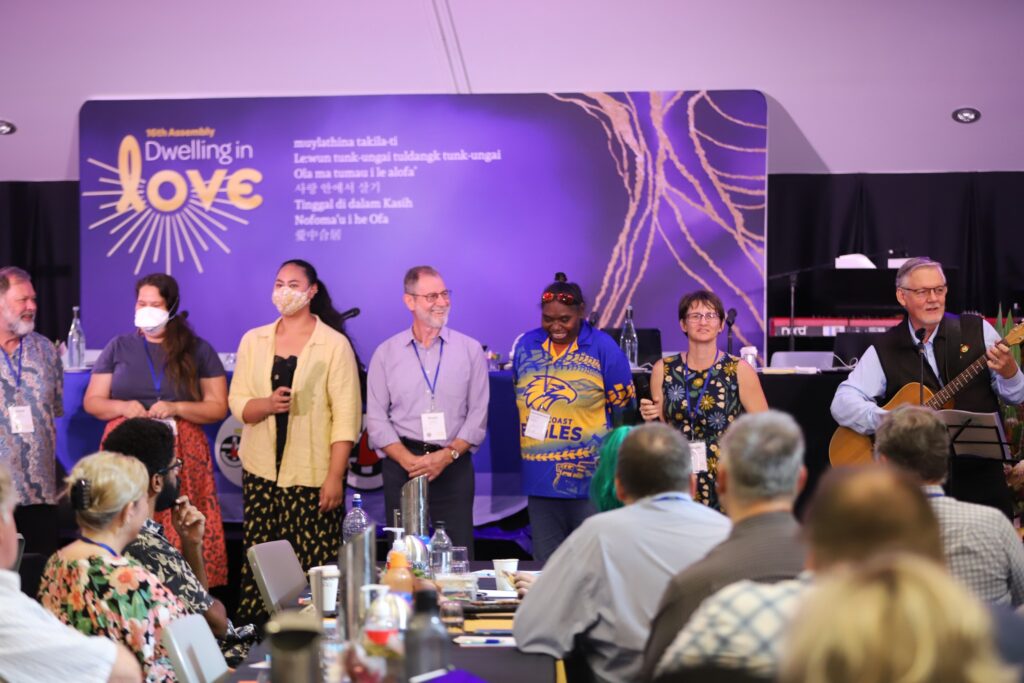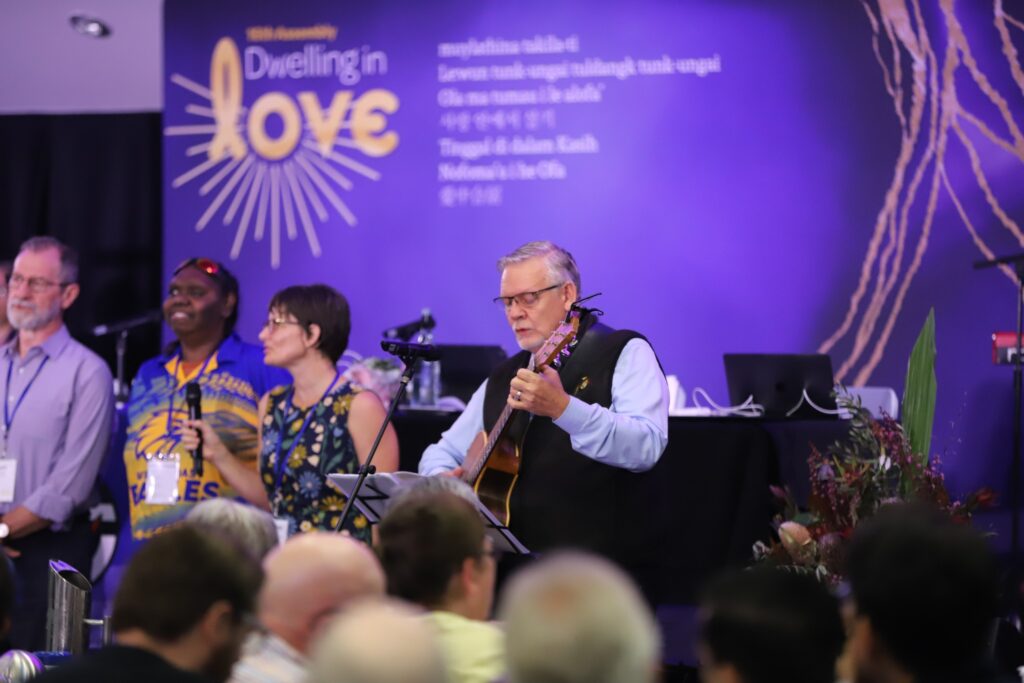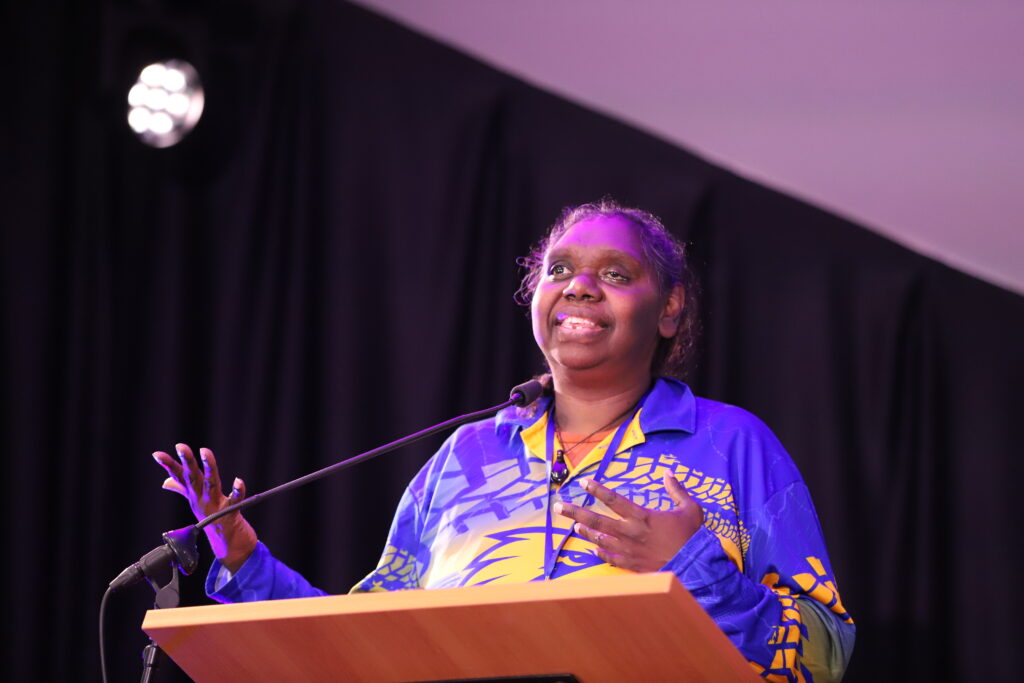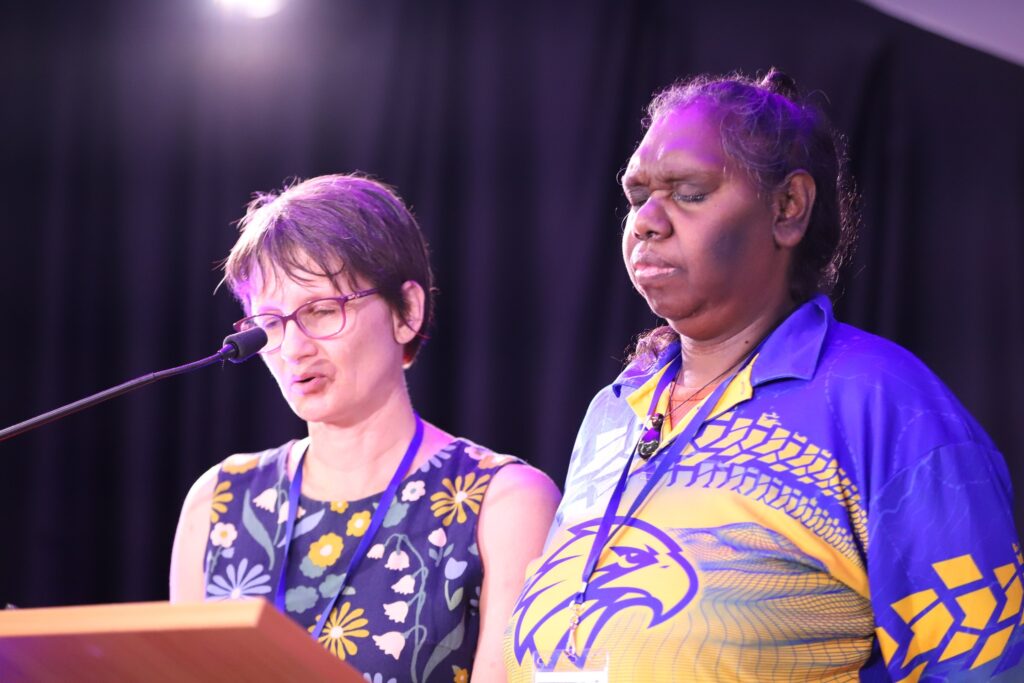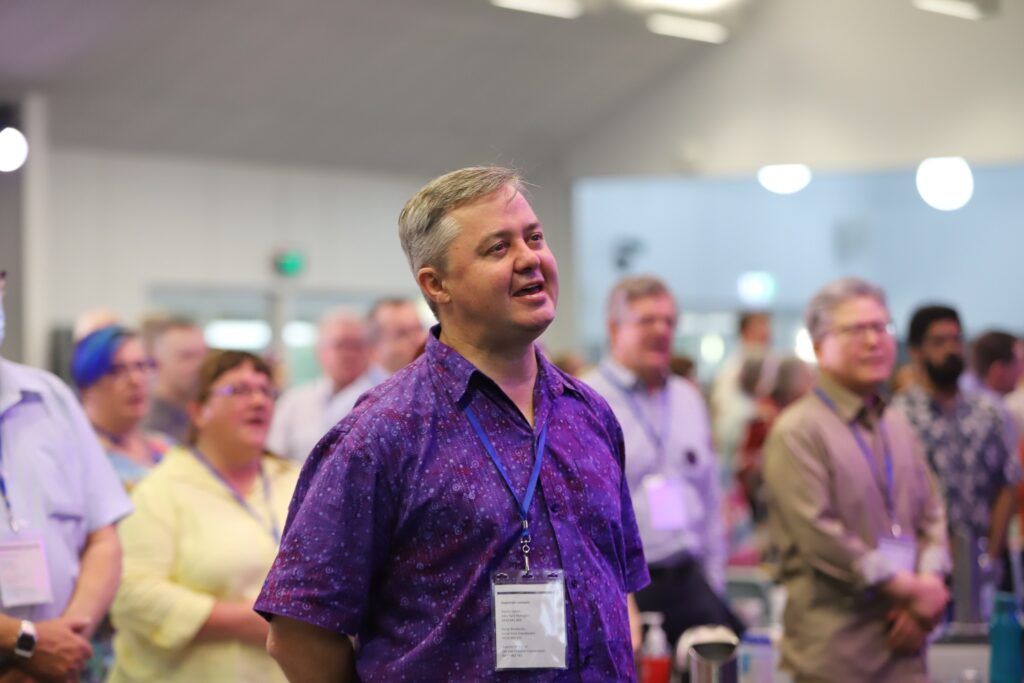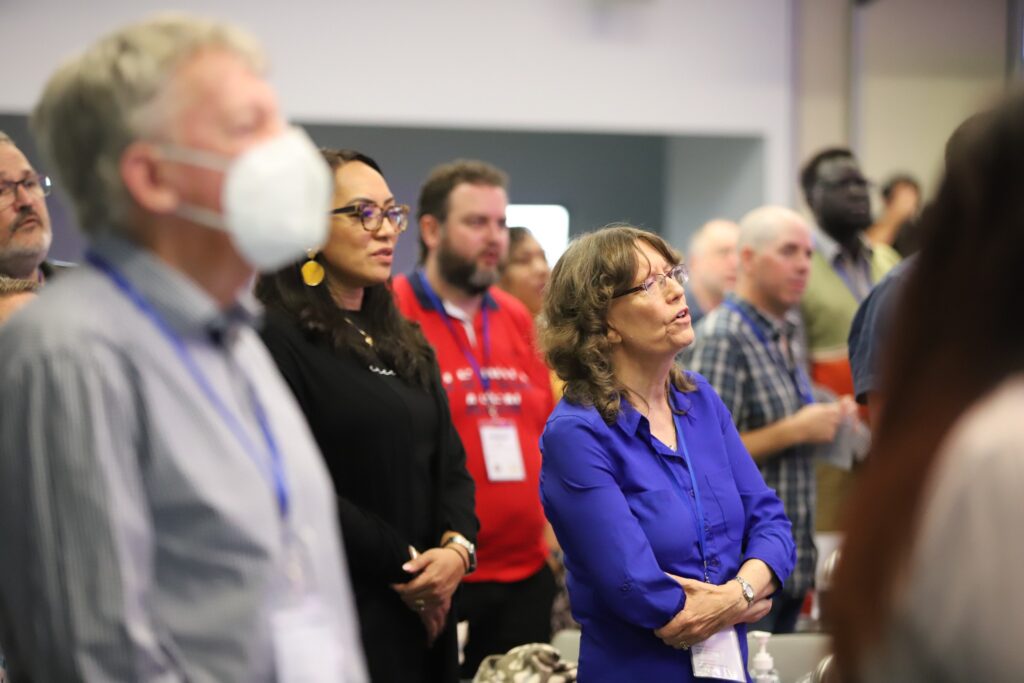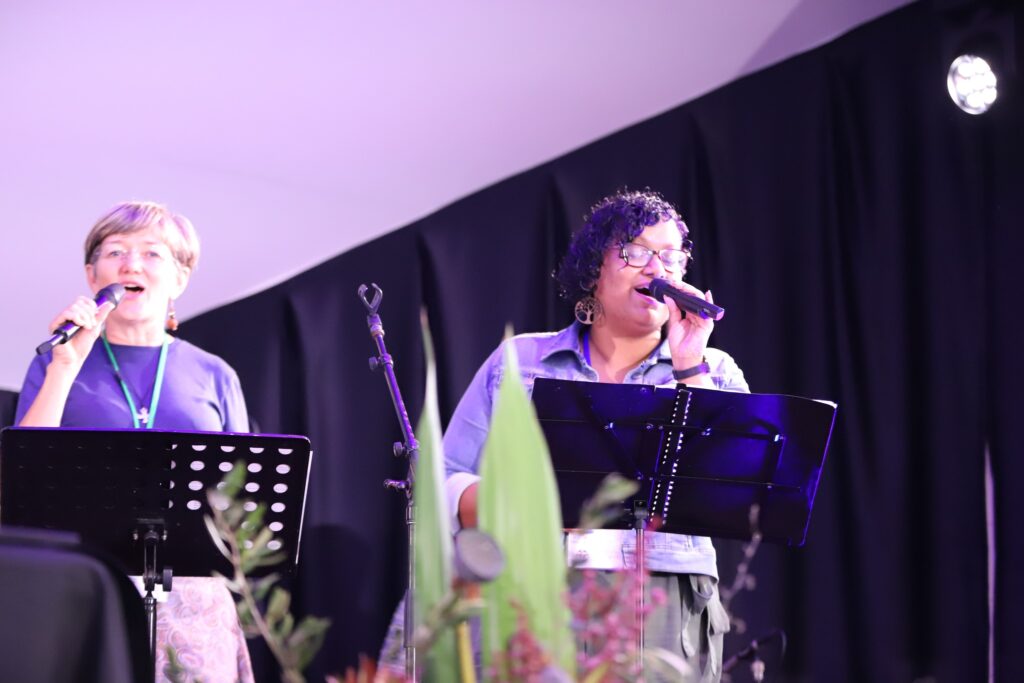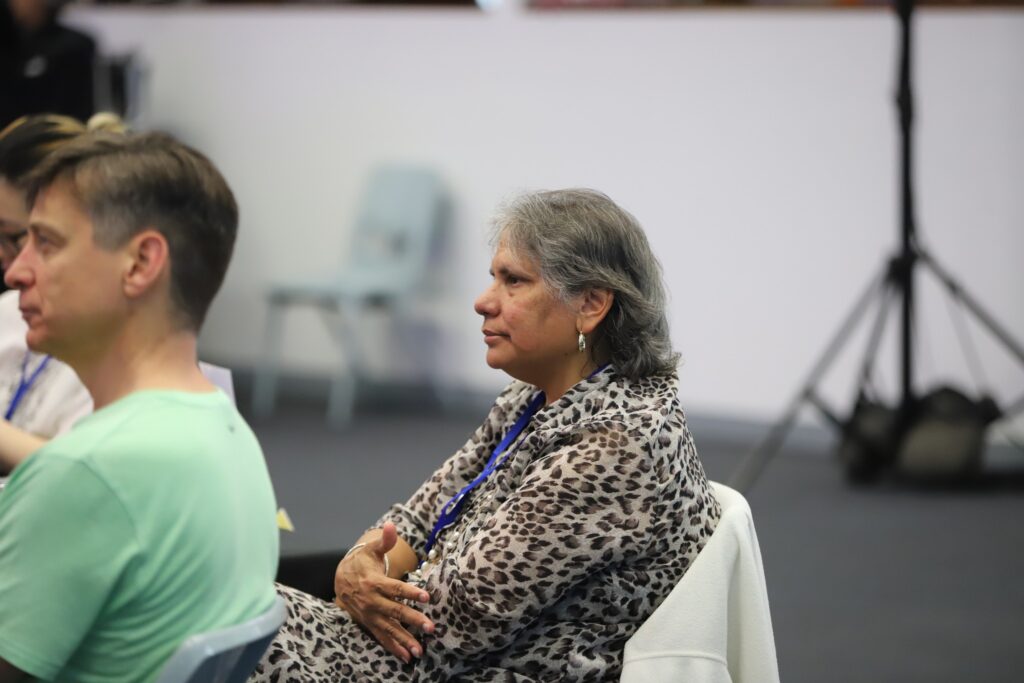Worship Day 2 #UCA22
May 7, 2022
Dwelling in Love with all Creation
Day 2 of the reconvened Assembly began in worship with an Acknowledgment of Country sung in the language of the Gubbi Gubbi People, led by Megan Laurie-Thomson and the Assembly band.
Like the online meeting of the Assembly last year, students from Nungalinya College in Darwin are leading the Bible Reflections for the reconvened meeting, sharing their wisdom and insights on the 16th Assembly theme Dwelling in Love, informed by the Bible verses John 1, John 15 and 1 Corinthians 13.
In preparation for the studies, students engaged in group Bible Studies facilitated by Rev Michelle Cook, reflecting on the sharing of the Lord’s Supper, and the context of ‘I am the vine, you are the branches’. As part of their reflection, they washed each other’s feet and thought about the connection between serving and connecting with Jesus.
As the time for Bible Reflections began, 16th Assembly members were first invited to reflect on John 1 through the creative lens of First Nations students at Nungyalinya College with a video presentation of artworks by the students titled “Creating in Love”. This was followed by a reading of John 1 was in many First Nation languages recorded on video by the Nungyalinga students last year.
A Bible Reflection was led in person by Pastor Kirsty Burgu. A Ngarinyin Worrorra woman, Kirsty was born at and is the Uniting Church Pastor at Mowanjum in Western Australia. She is an active artist with the Mowanjum Art and Culture Centre and was a finalist in the prestigious Blake Prize in 2021.
Kirsty spoke about her painting called the Creation Story, beautifully weaving together the creation stories she has learnt from her ancestors and her Christian faith.
In the painting, Kirsty depicts two Wandjina Idjair - the father (God) and Wodjin - the son (Jesus). Kirsty shared a story about how she first came to make links between the Creation stories of her own Aboriginal culture with her faith in Jesus.
Growing up, Kirsty said she didn’t know about Wodjin - the son. “A friend said to me, ‘where does Jesus fit in your creation story?’ and I didn’t have an answer because I didn’t know.”
“I was sitting down and a paper flew in front of me and it talked about Wodjin and how he is the son of Idjair and I thought, here is Jesus.”
“We don’t think about it, but all our stories connect with the Bible, I have my Jesus here, this Wandjina.”
Kirsty described how the painting depicts three figures symbolising the language groups from the West Kimberley of Western Australia as well as Jilinya, the mother of all people. Two snakes in the middle of the picture represent how the land, rivers and water ways were made and the world began to turn.
“All Indigenous people, before we are born, we are given an Ungud – a spiritual animal or landscape or it could even be tiniest insect,” Kirsty reflected.
“We are connected to creation. We listen to what the birds and animals are telling us. They can alert us to what is happening, when it’s going to rain, when that animal is fat to hunt, and we hunt what is in season, which is more sustainable.”
“We are the caretakers of this land, we hear it crying out to tell us when something is wrong, and we’d like to let other people know to help us to look after our Country.”
“I’m sure you have Unguds too. It doesn’t just happen to our folk. We are attuned to nature, are you attuned to nature? Are you taking notice of what is happening right in front of your eyes?
“Pay attention to nature and to all of creation.”
Northern Synod members again led 16th Assembly members in the joyful strains of I Can Do All Things in Djambarrpuyŋu, Kriol and English. The song is written by Rev Dr Maratja Dhamarrandji.
In a time of prayer, members of the 16th Assembly were invited to pray with one another using words Assembly members had shared on prayer cards at the first online meeting of the Assembly in 2021.
The time of worship closed in song. We will continue to learn from the wisdom of Nungalinya students at worship tomorrow. In the meantime you can read the full Bible reflections booklet here.
Nungalinya College is formally supported by the Anglican, Uniting and Catholic churches of the Northern Territory and is located in Casuarina, a northern suburb of Darwin. Since 1974, Nungalinya College has been equipping men and women of Australian First People’s groups for leadership roles in churches and communities. Find out more

